Find Help
More Items From Ergsy search
-

Social prescribing in practice: supporting social prescribing link workers
Relevance: 100%
-

How can a Social Prescribing Link Worker help you? #MeetYourGPTeam
Relevance: 86%
-
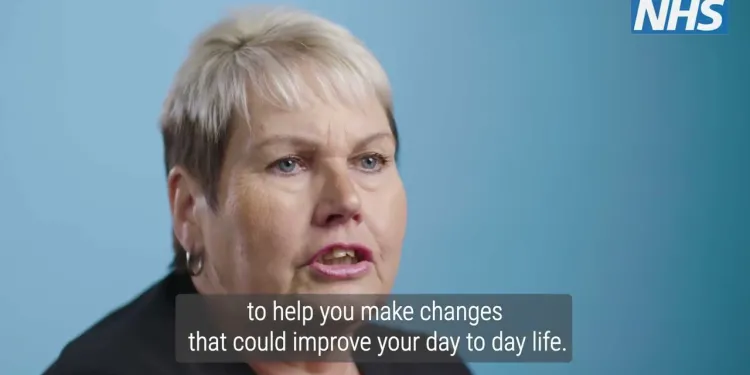
Social Prescribing Link Workers are part of new health and wellbeing services in NHS surgeries
Relevance: 82%
-
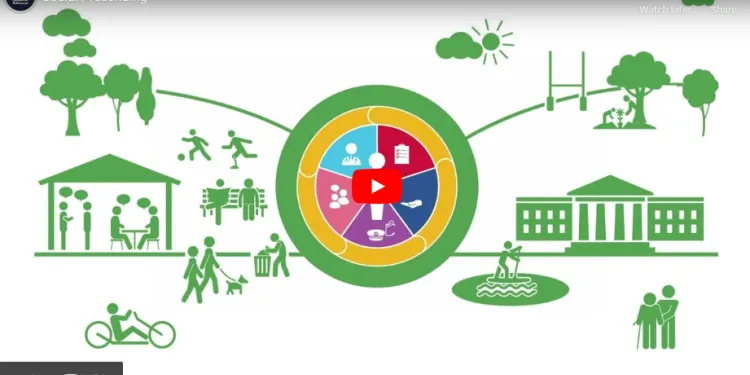
Social Prescribing
Relevance: 76%
-

Social Prescribing
Relevance: 74%
-
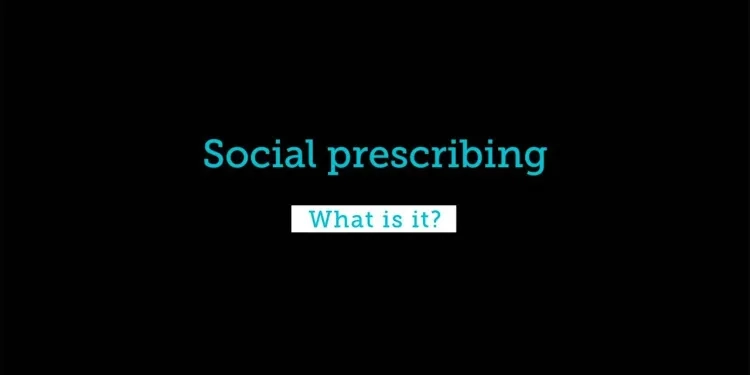
Social prescribing – what is it?
Relevance: 73%
-

Social prescribing in south east London
Relevance: 67%
-
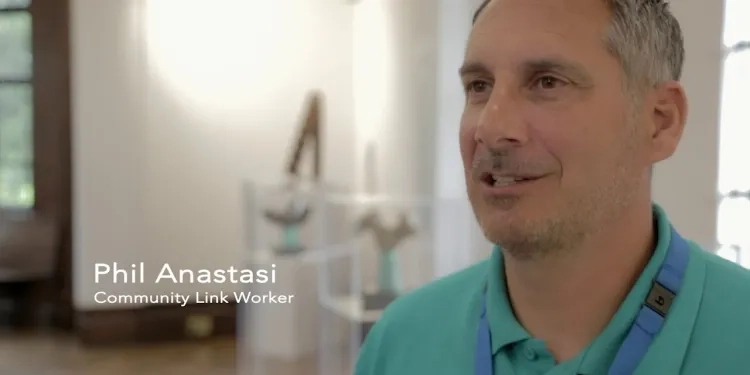
Introducing Social Prescribing - short video
Relevance: 67%
-

Social Prescribing in Greater Manchester
Relevance: 66%
-
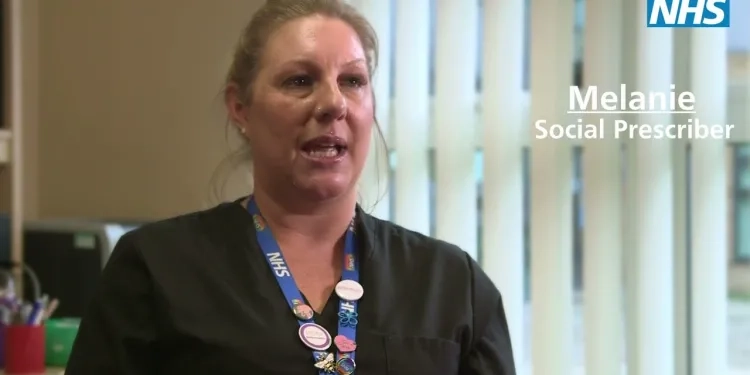
What is a social prescriber?
Relevance: 62%
-

What is a social prescriber, and how do they support general practice?
Relevance: 51%
-

Are gig workers entitled to workers' compensation?
Relevance: 33%
-

Lone Workers
Relevance: 32%
-

Do gig workers qualify for retirement benefits?
Relevance: 30%
-

What are my rights as a Gig Worker?
Relevance: 29%
-

Do gig workers have the right to unionize?
Relevance: 29%
-

Can support workers participate in decision-making processes?
Relevance: 29%
-

Do chiropractors prescribe medications?
Relevance: 28%
-

Is certification necessary for primary care support workers?
Relevance: 28%
-
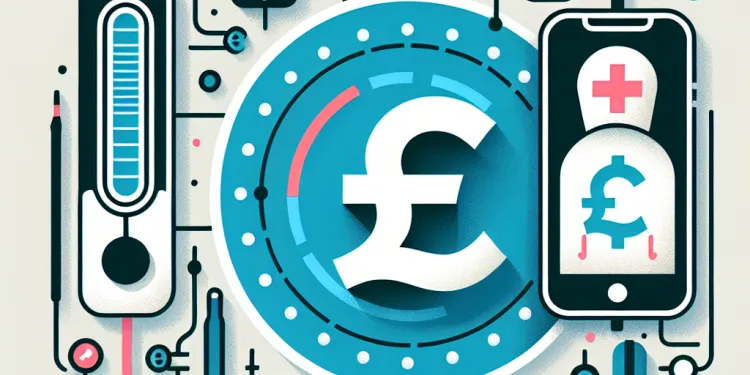
Are gig workers entitled to sick leave?
Relevance: 28%
-

Am I entitled to overtime pay as a gig worker?
Relevance: 28%
-

Is job security a right for gig workers?
Relevance: 28%
-
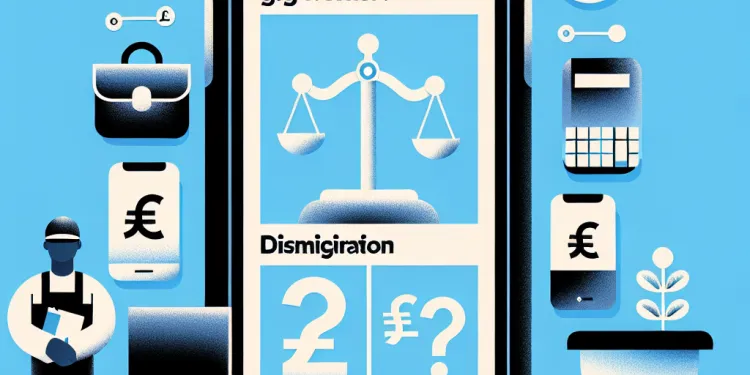
What can I do if I face discrimination as a gig worker?
Relevance: 28%
-

Is paracetamol linked to autism?
Relevance: 27%
-

Are vaccines linked to autism?
Relevance: 27%
-
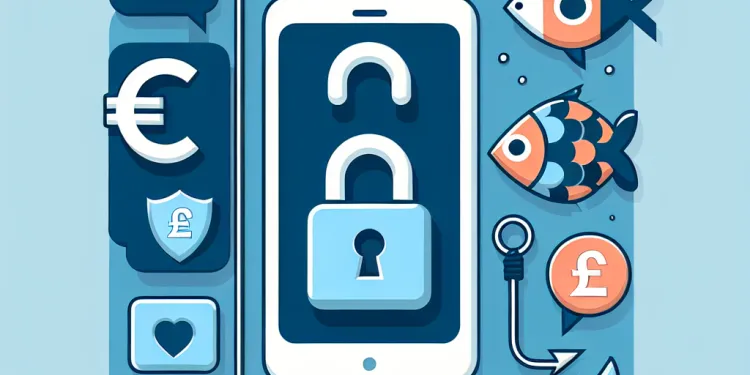
How can phishing attacks lead to social media hacks?
Relevance: 27%
-

Are gig workers protected against wrongful termination?
Relevance: 27%
-

Do gig workers have access to unemployment benefits?
Relevance: 27%
-

Do gig workers have the right to a minimum wage?
Relevance: 27%
-

Can I receive health benefits as a gig worker?
Relevance: 27%
-

Is health linked to aging?
Relevance: 27%
-

Are there academic courses for aspiring primary care support workers?
Relevance: 26%
-

Sean's Story - There is another way. Information for prescribers
Relevance: 26%
-
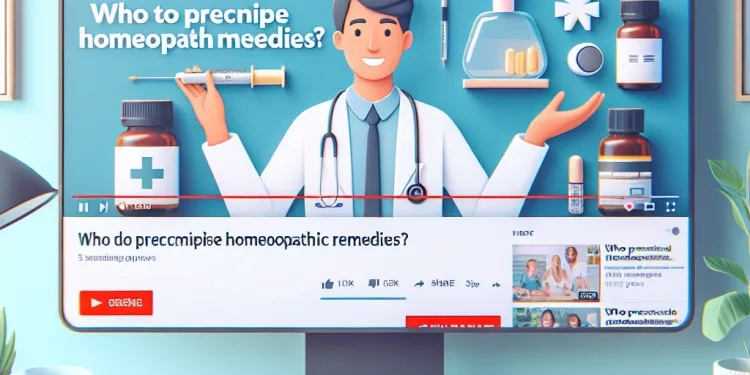
Who can prescribe homeopathic remedies?
Relevance: 26%
-

Are zero-hour contract workers entitled to the National Living Wage?
Relevance: 26%
-

Is mentorship available for primary care support workers?
Relevance: 26%
-

Do gig workers have the right to transparency in pay and fees?
Relevance: 26%
-

What healthcare policies should support workers be aware of?
Relevance: 26%
-

What are my rights regarding workplace safety as a gig worker?
Relevance: 26%
-

What help is available to primary care support workers?
Relevance: 26%
Social Prescribing in Practice: Supporting Social Prescribing Link Workers
Understanding Social Prescribing
Social prescribing is an innovative approach in healthcare where primary care professionals refer patients to non-medical services to support their overall well-being. This could include activities like arts and crafts, physical exercise, volunteering, or joining community groups. The goal is to address the social, emotional, and practical needs of individuals, particularly those with long-term conditions, mental health issues, or who are lonely and isolated.
The Role of Social Prescribing Link Workers
Social prescribing link workers play a critical role in this process. They act as a bridge between healthcare providers and community services. Link workers meet with patients to understand their needs, preferences, and interests, and then connect them with relevant services and activities. By taking the time to build a relationship with patients, link workers can tailor support that empowers individuals to take control of their health and well-being.
Challenges Faced by Link Workers
Despite the numerous benefits of social prescribing, link workers face several challenges. These include heavy caseloads, limited resources, and the need for ongoing training. Another significant challenge is ensuring that there are sufficient community resources and activities to meet the diverse needs of patients. Additionally, link workers must often manage complex cases that require a high level of coordination and follow-up.
Supporting Social Prescribing Link Workers
To promote the effectiveness of social prescribing, it is crucial to support link workers properly. This support can come in various forms:
- Training and Development: Providing continuous professional development opportunities helps link workers stay updated with the latest practices and enhances their skills in areas such as motivational interviewing, mental health support, and community engagement.
- Access to Resources: Ensuring link workers have access to updated directories of local services, technological tools for tracking patient progress, and sufficient funding to sustain community programs.
- Emotional Support: Link workers also need to maintain their own well-being. Regular supervision, peer support groups, and opportunities for debriefing can help manage stress and prevent burnout.
- Collaboration and Networking: Fostering strong partnerships between healthcare providers, local authorities, and community organizations ensures a cohesive approach and maximizes the impact of social prescribing initiatives.
Conclusion
Social prescribing represents a transformative approach to holistic care, benefiting patients by addressing their social determinants of health. Supporting social prescribing link workers with the necessary resources, training, and emotional support is essential for the success of these initiatives. Through cohesive effort and strategic collaboration, social prescribing can significantly enhance community health and well-being across the United Kingdom.
Social Prescribing in Practice: Helping Link Workers
What is Social Prescribing?
Social prescribing helps people feel better by connecting them to activities and groups in their community. Doctors or nurses might suggest activities like arts and crafts, exercise, volunteering, or joining local groups. It helps people who feel lonely, have ongoing health problems, or are sad.
Who are Link Workers?
Link workers help people find the right community activities. They talk to people to understand what they like and what they need. Then, they help them join activities that make them feel better. Link workers make sure people get the help they need to feel healthier and happier.
Challenges for Link Workers
Link workers have important jobs but face problems too. They have too many people to help and not enough resources. They need more training to do their job well. Also, there might not be enough community activities for everyone who needs them. Sometimes, they help people with complicated needs which takes a lot of time.
Helping Link Workers Do Their Job
To help link workers do their job well, we can do a few things:
- Training: Teach link workers new skills so they can help people better. This includes learning how to talk to people, understand mental health, and engage with the community.
- Resources: Give link workers lists of community services and tools to track progress. More money and support for community activities would also help.
- Emotional Support: Link workers need to stay healthy, too. Regular meetings with other workers can help them share experiences and reduce stress.
- Teamwork: When link workers, healthcare workers, and community groups work together, they can help more people. Strong teamwork makes social prescribing more successful.
Summary
Social prescribing helps people by connecting them to community activities. To make it work well, link workers need support, training, and resources. By working together, we can make sure everyone gets the help they need to feel better and healthier.
Frequently Asked Questions
What is social prescribing?
Social prescribing is a way for healthcare professionals to refer patients to non-medical services in their community, such as social activities, physical exercise, and support groups, to improve their health and well-being.
Who are social prescribing link workers?
Social prescribing link workers are professionals who connect patients with community services and support, acting as a bridge between healthcare and social services.
What types of services can social prescribing link workers refer to?
Link workers can refer patients to a variety of services including gardening clubs, exercise groups, arts activities, volunteering opportunities, and financial advice services.
How can social prescribing benefit patients?
Social prescribing can help improve mental health, reduce loneliness, enhance physical health, and support patients in managing long-term conditions by addressing social determinants of health.
Who is eligible for social prescribing?
Social prescribing is generally available to anyone who might benefit from additional support beyond medical treatment, including those with chronic illnesses, mental health issues, or social isolation.
How do patients get referred to a social prescribing link worker?
Patients can be referred by healthcare professionals such as GPs, nurses, or social services. In some cases, patients can also self-refer.
What is the role of a General Practitioner (GP) in social prescribing?
GPs can identify patients who might benefit from social prescribing and make referrals to social prescribing link workers who will take it from there.
What is a typical process after a referral is made?
The link worker will meet with the patient to discuss their needs, interests, and goals, then create a personalized plan and connect them to appropriate community services.
How is the success of social prescribing measured?
Success can be evaluated through improved patient well-being, reduced healthcare visits, enhanced community engagement, and feedback from patients and service providers.
Can social prescribing help with mental health issues?
Yes, social prescribing can support mental health by providing social connections, recreational activities, and emotional support services that help reduce anxiety and depression.
How does social prescribing address social isolation?
Social prescribing links individuals to group activities and community networks, fostering social connections and reducing feelings of loneliness.
Is social prescribing available across the UK?
Social prescribing is becoming increasingly available across the UK, with many primary care networks incorporating link workers into their teams.
What training do social prescribing link workers receive?
Link workers often receive training in areas such as motivational interviewing, mental health awareness, welfare advice, and local community services.
What challenges do social prescribing link workers face?
Challenges can include managing high caseloads, finding suitable services for individual needs, and ensuring sustainable funding for community services.
How can communities support social prescribing?
Communities can support social prescribing by creating and maintaining a diverse range of accessible activities and services, and by fostering partnerships between healthcare providers and community organizations.
What is social prescribing?
Social prescribing is when a doctor or nurse helps you find activities or support in your community to make you feel better. It's not about medicine. It's about joining groups, meeting people, or learning new things to help your well-being.
Here are some things that might help:
- Join a Group: Go to clubs like art or music.
- Exercise: Try walking or dancing classes.
- Talk to Someone: Meet with a friendly advisor for advice.
If you need help, you can:
- Ask your doctor for ideas.
- Look for community centers near you.
Social prescribing is when doctors or nurses help people by suggesting fun activities and exercise instead of medicine. This can help people feel better and get healthier. They might suggest clubs, exercise classes, or support groups in the community.
Who are social prescribing link workers?
Social prescribing link workers are people who help you find activities and support to feel better. They talk to you and help you choose things that can make you feel good, like joining a club or taking part in a hobby.
If you find reading hard, you can ask someone to read this to you or use a tool that reads text out loud. This makes understanding easier.
Social prescribing link workers are people who help others find support in the community. They connect you to services and help from both healthcare and social groups.
What help can social prescribing link workers offer?
Social prescribing link workers can help you find different types of support. They can guide you to activities and services that can make you feel better. Here are some examples:
- Exercise Groups: Join a walking group or try a fun dance class.
- Community Activities: Meet new friends and join clubs or hobby groups.
- Support Groups: Talk to others and share your feelings in a safe place.
- Advice Services: Get help with job advice, housing support, or learning new skills.
- Therapy Sessions: Talk to a counselor to help with your worries.
Using pictures or stories to explain how each service works can be helpful. A friend or family member can help you read through options and decide what is best for you.
Link workers can help people by sending them to different places, such as gardening clubs, exercise groups, art activities, places to volunteer, and places to get money advice.
To support understanding, you can use pictures or videos, keep sentences short, and explain any tricky words.
How does social prescribing help people feel better?
Social prescribing is when a doctor or nurse helps you find activities and groups that make you feel good.
It can be things like joining a sports team, art classes, or talking groups.
Here’s how it can help you:
- Makes you happier: Doing fun activities or meeting new friends can make you smile more.
- Keeps you healthy: Being active and doing things you love is good for your body and mind.
- Helps you feel part of a group: Joining a club or class can help you make friends and feel less alone.
You can use tools like reminder apps to help you keep track of your activities.
Social prescribing can help people feel better. It can make them happier and less lonely. It can also help them stay fit and healthy. It can support people who have health problems for a long time by looking at their whole life, not just their illness.
Who can get help from social prescribing?
Social prescribing helps people who need more than just medicine. It can help if you are often sick, feel sad or worried, or feel lonely.
How do doctors help patients meet a social prescribing link worker?
If you need help with things in your life, your doctor might suggest you talk to a special helper. This helper is called a social prescribing link worker.
Here is how your doctor helps you:
- Your doctor listens to your needs and tries to understand what might help you.
- If your doctor thinks a social link worker can help, they will tell you about them.
- Your doctor will help set up a meeting with this special helper.
Here are some tools that can help:
- Pictures: They can help you understand what a social link worker does.
- Videos: Watching a video can show you how this meeting might go.
Doctors, nurses, or social workers can help people get the care they need by sending them to the right place. Sometimes, people can also ask for help themselves.
What does a GP do in social prescribing?
A General Practitioner, or GP, is a doctor who helps people stay healthy. They are doctors you see when you are not feeling well or for check-ups.
Social prescribing is when a doctor helps you by suggesting things that are not medicine. This could be things like joining a club, learning a new skill, or getting more exercise.
The GP talks to you about what might help you feel better. They give you advice about activities or groups in your community that you can try.
There are helpful tools and people that can make it easier to understand what your GP suggests. Some GPs have a link worker who can provide extra support.
Doctors can find people who might need extra help. They can ask special helpers, called social prescribing link workers, to help those people.
What happens after someone is referred?
When a person is referred, there are a few steps that usually happen. Here's a simple guide:
- Step 1: The referral is looked at by the right people. They decide what to do next.
- Step 2: They might get in touch with the person who was referred. This could be by phone, mail, or a meeting.
- Step 3: Sometimes they gather more information to understand the person’s needs better.
- Step 4: They make a plan to help the person. This plan might have different activities or support.
- Step 5: The person and their family can ask questions and share their thoughts.
Tools like picture charts or a notebook can help remember each step and what to do next.
The link worker will talk to the patient about what they need, what they like to do, and what they want to achieve. Then, they will make a special plan just for them and help them find services in the community that can help.
How do we know if social prescribing is working?
We can find out if social prescribing is working by checking different things.
Here are some ways to see if it is helpful:
- Ask people how they feel after using it.
- See if people are happier and healthier.
- Count how many people try it and like it.
- Talk to doctors and helpers about what they see.
Pictures, charts, or apps that help explain things can make it easier to understand.
We can see success by checking a few things. First, we look at how happy and healthy people feel. We also check if they need to go to the doctor less often. Next, we see if more people are joining in with community activities. Finally, we ask patients and doctors what they think.
Can social prescribing help with mental health?
Social prescribing is a way to get help by doing activities. It can help people feel better.
Things like joining a club, taking a class, or going for a walk can help your mind.
If you feel sad, worried, or stressed, these activities might help you feel happy again.
You can talk to your doctor about social prescribing. They can help you find things to do.
You can also use apps or talk to friends to find fun activities.
Remember, it is okay to ask for help. Doing things you like can make you feel better!
Yes, social prescribing can help with feeling better. It helps people find friends, fun activities, and support to feel less worried and sad.
How can social prescribing help if you feel alone?
Social prescribing helps people join in group activities and meet others in their community. This can help make friends and feel less lonely.
Can everyone in the UK get social prescribing?
Social prescribing is a way for doctors to help people with their health. It uses activities like walking groups or art classes.
Not everyone in the UK can get social prescribing right now.
Ask your doctor if you can use social prescribing where you live.
Talking to a friend or family can help you understand.
Doctors in the UK are starting to give 'social prescriptions'. This helps people feel better.
Many doctors are adding special helpers, called link workers, to their teams.
What training do link workers get?
Link workers help people find support.
They are trained to listen to people.
They help with health and happiness.
Link workers learn about:
- Talking to people
- Helping with stress
- Making plans
- Finding local support
Link workers work with doctors and nurses.
They also learn from each other.
Tools like pictures and videos can help them learn.
Link workers get special lessons. They learn how to talk to people, help with mental health, give advice on money help, and find services in the local area.
What problems do social prescribing link workers have?
Social prescribing link workers help people find support in their community. They face some problems:
- Understanding: It can be hard for them to understand what each person needs.
- Resources: Sometimes, there are not enough activities or resources for everyone.
- Time: They might not have enough time to help everyone.
- Training: They need good training to do their jobs well.
Tools that can help:
- Use simple checklists to keep track of tasks.
- Ask for help or more training when needed.
- Talk to other workers to share ideas and solutions.
Some problems are:
- Having too many cases to take care of.
- Finding the right help for each person.
- Getting enough money to keep services going.
Here are some ways to help:
- Use tools like calendars or apps to organize work.
- Talk to people to find out what help they need.
- Look for places that can give money or support.
How can communities help with social prescribing?
Social prescribing is a way to help people feel better by doing activities in their community. Here are some ways communities can help: 1. **Talk and Listen**: - **Have Conversations**: Encourage people to talk about how they feel. - **Listen Carefully**: Make sure to listen and care about what others say. 2. **Share Information**: - **Tell People about Activities**: Share details about fun and helpful things to do nearby, like sports or art classes. - **Use Flyers and Posters**: Put up signs to let everyone know what’s happening. 3. **Be Welcoming**: - **Create Friendly Places**: Make sure everyone feels welcome in community centers and parks. - **Invite People to Join**: Encourage others to come and try new activities. 4. **Work Together**: - **Team Up**: Get different groups to work together to offer more activities. - **Support Each Other**: Help one another when trying something new. 5. **Use Helpful Tools**: - **Maps and Lists**: Provide easy maps or lists of where activities are happening. - **Digital Tools**: Use simple apps or websites to share and find information. By doing these things, communities can help everyone feel happier and more connected!Communities can help people get the right support by offering different activities and services that everyone can join in. They can also team up with doctors and community groups to make these activities better.
Useful Links
This website offers general information and is not a substitute for professional advice.
Always seek guidance from qualified professionals.
If you have any medical concerns or need urgent help, contact a healthcare professional or emergency services immediately.
- Ergsy carfully checks the information in the videos we provide here.
- Videos shown by Youtube after a video has completed, have NOT been reviewed by ERGSY.
- To view, click the arrow in centre of video.
- Most of the videos you find here will have subtitles and/or closed captions available.
- You may need to turn these on, and choose your preferred language.
- Go to the video you'd like to watch.
- If closed captions (CC) are available, settings will be visible on the bottom right of the video player.
- To turn on Captions, click settings .
- To turn off Captions, click settings again.
More Items From Ergsy search
-

Social prescribing in practice: supporting social prescribing link workers
Relevance: 100%
-

How can a Social Prescribing Link Worker help you? #MeetYourGPTeam
Relevance: 86%
-

Social Prescribing Link Workers are part of new health and wellbeing services in NHS surgeries
Relevance: 82%
-

Social Prescribing
Relevance: 76%
-

Social Prescribing
Relevance: 74%
-

Social prescribing – what is it?
Relevance: 73%
-

Social prescribing in south east London
Relevance: 67%
-

Introducing Social Prescribing - short video
Relevance: 67%
-

Social Prescribing in Greater Manchester
Relevance: 66%
-

What is a social prescriber?
Relevance: 62%
-

What is a social prescriber, and how do they support general practice?
Relevance: 51%
-

Are gig workers entitled to workers' compensation?
Relevance: 33%
-

Lone Workers
Relevance: 32%
-

Do gig workers qualify for retirement benefits?
Relevance: 30%
-

What are my rights as a Gig Worker?
Relevance: 29%
-

Do gig workers have the right to unionize?
Relevance: 29%
-

Can support workers participate in decision-making processes?
Relevance: 29%
-

Do chiropractors prescribe medications?
Relevance: 28%
-

Is certification necessary for primary care support workers?
Relevance: 28%
-

Are gig workers entitled to sick leave?
Relevance: 28%
-

Am I entitled to overtime pay as a gig worker?
Relevance: 28%
-

Is job security a right for gig workers?
Relevance: 28%
-

What can I do if I face discrimination as a gig worker?
Relevance: 28%
-

Is paracetamol linked to autism?
Relevance: 27%
-

Are vaccines linked to autism?
Relevance: 27%
-

How can phishing attacks lead to social media hacks?
Relevance: 27%
-

Are gig workers protected against wrongful termination?
Relevance: 27%
-

Do gig workers have access to unemployment benefits?
Relevance: 27%
-

Do gig workers have the right to a minimum wage?
Relevance: 27%
-

Can I receive health benefits as a gig worker?
Relevance: 27%
-

Is health linked to aging?
Relevance: 27%
-

Are there academic courses for aspiring primary care support workers?
Relevance: 26%
-

Sean's Story - There is another way. Information for prescribers
Relevance: 26%
-

Who can prescribe homeopathic remedies?
Relevance: 26%
-

Are zero-hour contract workers entitled to the National Living Wage?
Relevance: 26%
-

Is mentorship available for primary care support workers?
Relevance: 26%
-

Do gig workers have the right to transparency in pay and fees?
Relevance: 26%
-

What healthcare policies should support workers be aware of?
Relevance: 26%
-

What are my rights regarding workplace safety as a gig worker?
Relevance: 26%
-

What help is available to primary care support workers?
Relevance: 26%


